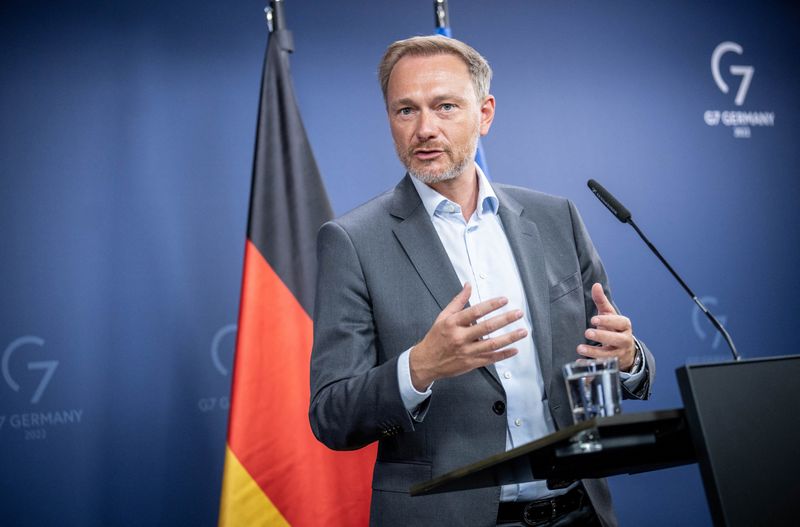BERLIN (Reuters) - Germany should not tax "excessive" company profits earned amid an economic and energy crisis as that would interfere with market forces, the finance minister said in an interview on Sunday when asked about the windfall levies imposed elsewhere in Europe.
Italy and Britain are among those to introduce windfall taxes this year on energy firms that have benefited greatly from tight fuel supplies as state coffers emptied during the pandemic and costs to shelter the poorest in society have climbed.
"To me, much and possibly everything speaks against a possible excessive profit tax when I think about it closely," minister Christian Lindner of the liberal Free Democrats (FDP) told public broadcaster ZDF.
"It would mean that we would offer up our tax system to arbitrariness," he said in the broadcaster's summer interview series with politicians.
Britain introduced a 25% windfall tax on oil and gas producers' profits in May to help fund support for households.
Lindner argued that vaccine producers were rightly reaping high profits because their risks had been high, and that while electricity supplies are tight as they are now, higher prices were the correct consequence to steer market responses.
Lindner referred to his initiative at the European Union level published on Sunday to try and waive the value-added tax on a new gas levy, which Germany will announce on Monday, to spread the additional energy costs out more evenly.
"We don't want to - and must make sure that the state does not - benefit financially from this solidarity levy," he said.
He said he would stick to what he saw as tight fiscal spending as far as possible in order not to fan inflation any further.

Others in Germany's three-party ruling coalition have different views, however.
While chancellor Olaf Scholz of the Social Democrats says imposing windfall taxes would be challenging, economy minister Robert Habeck of the Greens has repeatedly demanded that "unearned and by-chance profits" must serve society, not individuals.